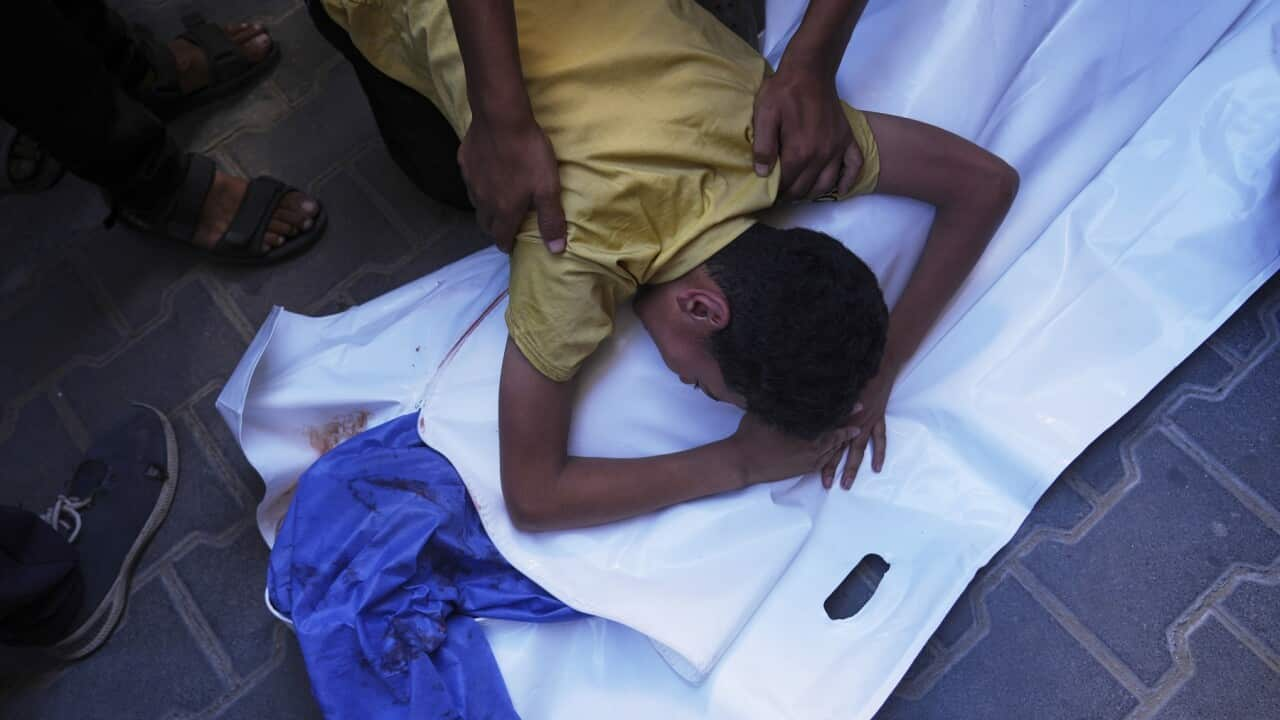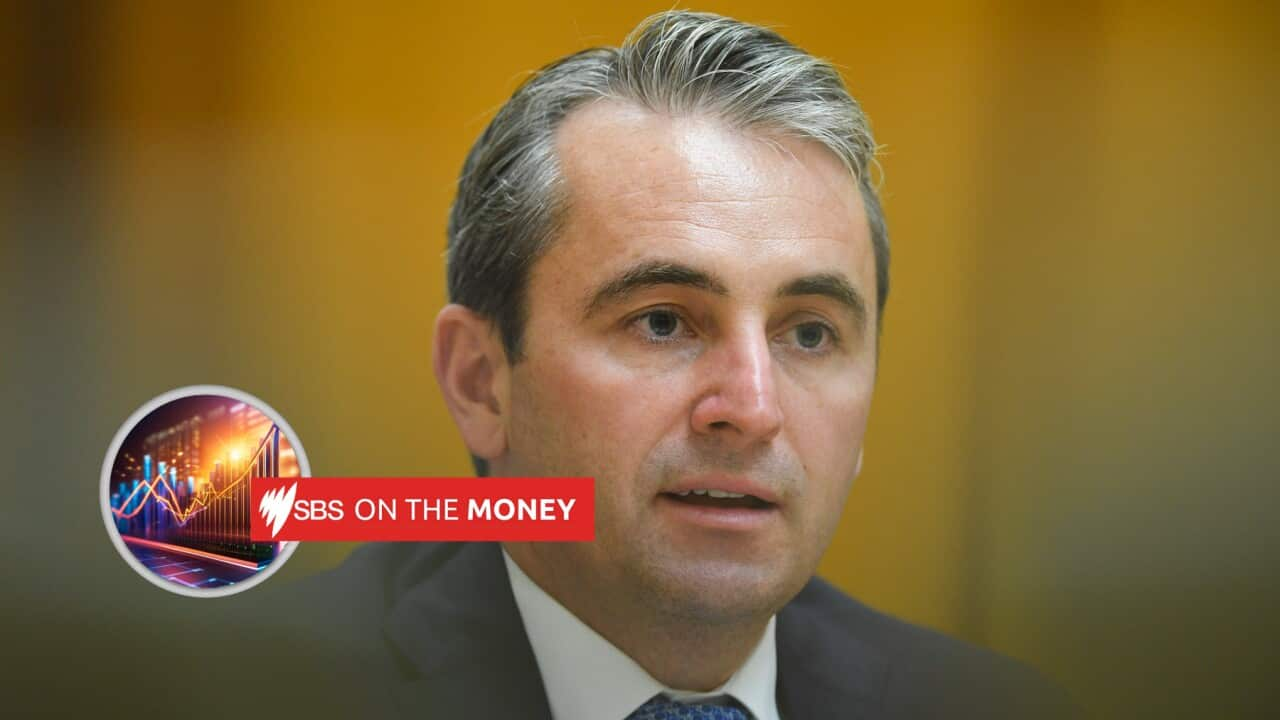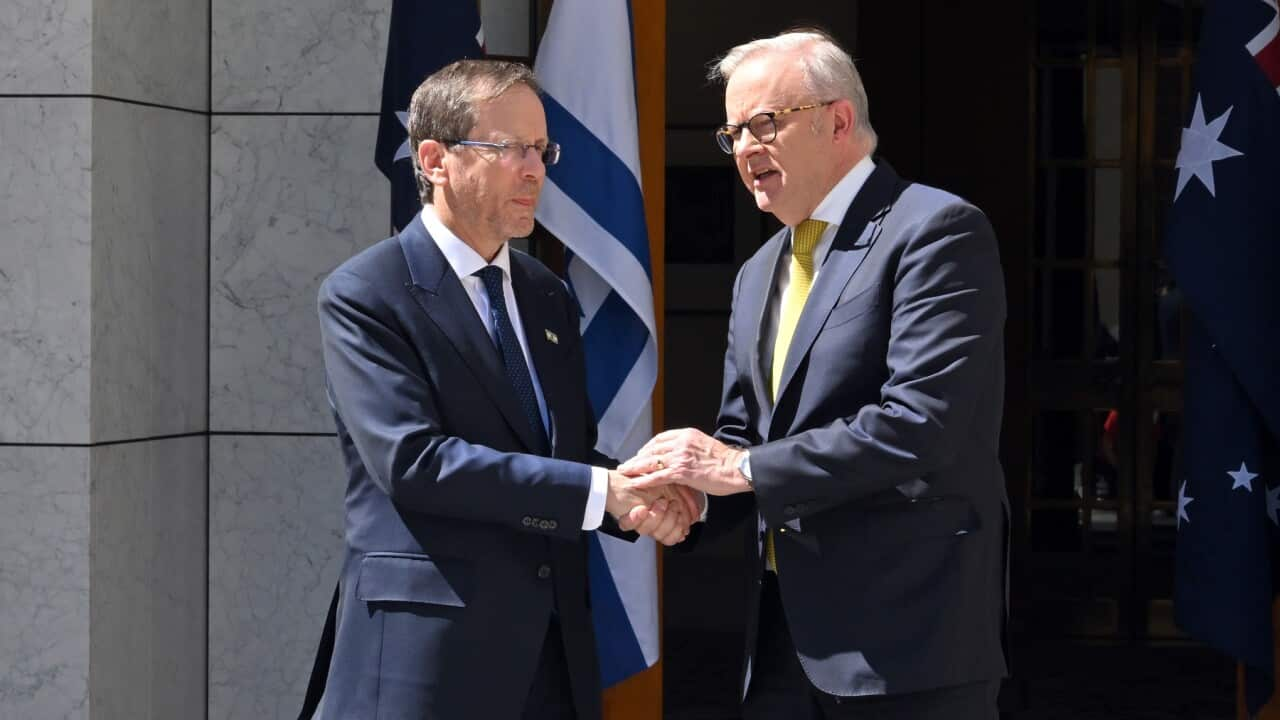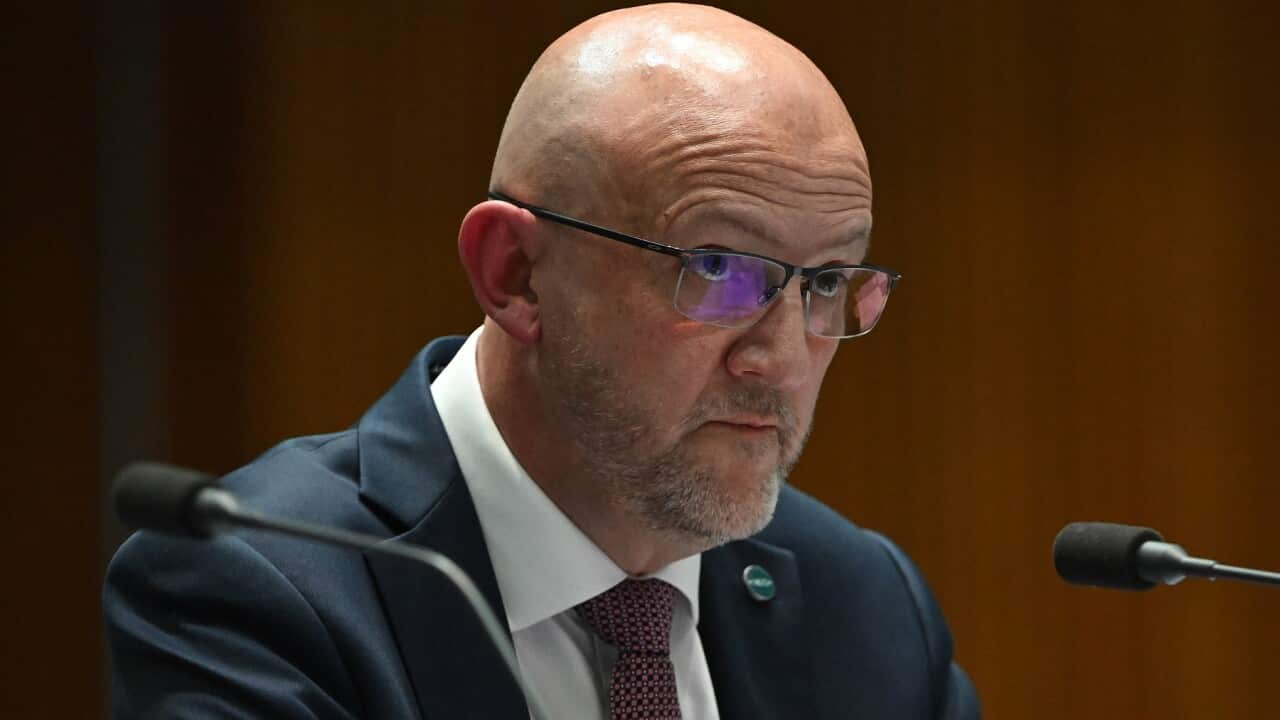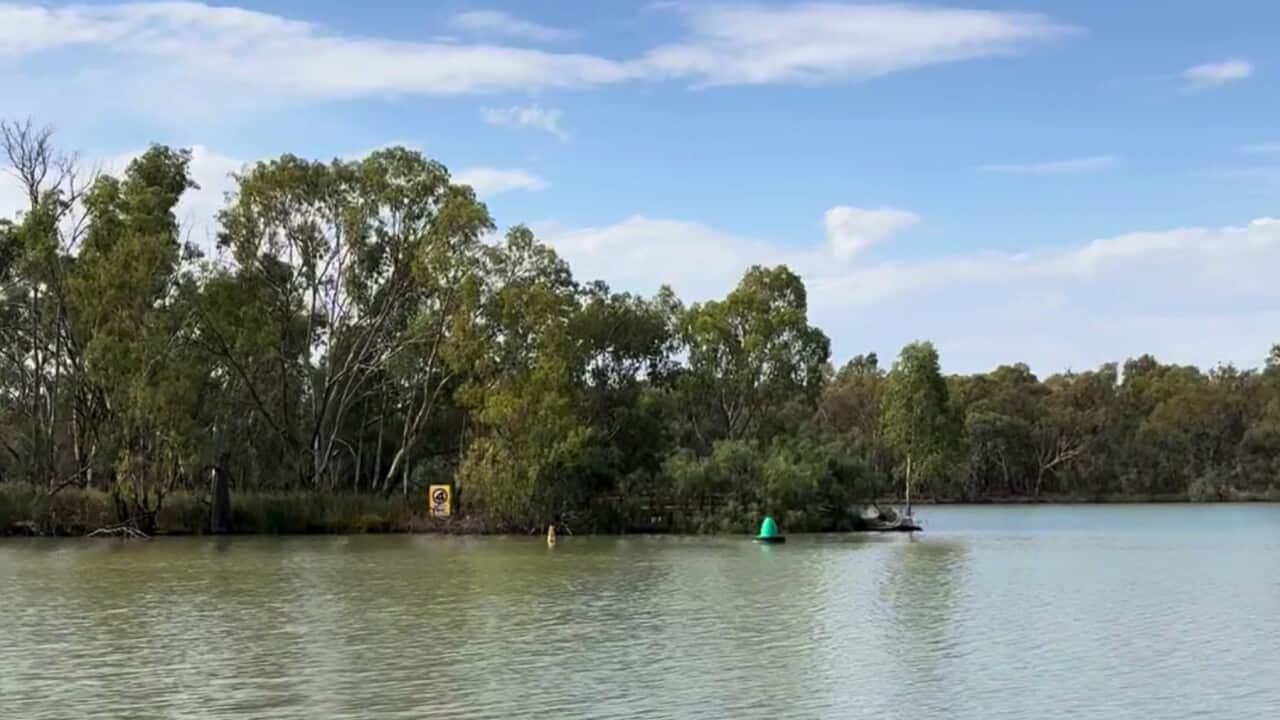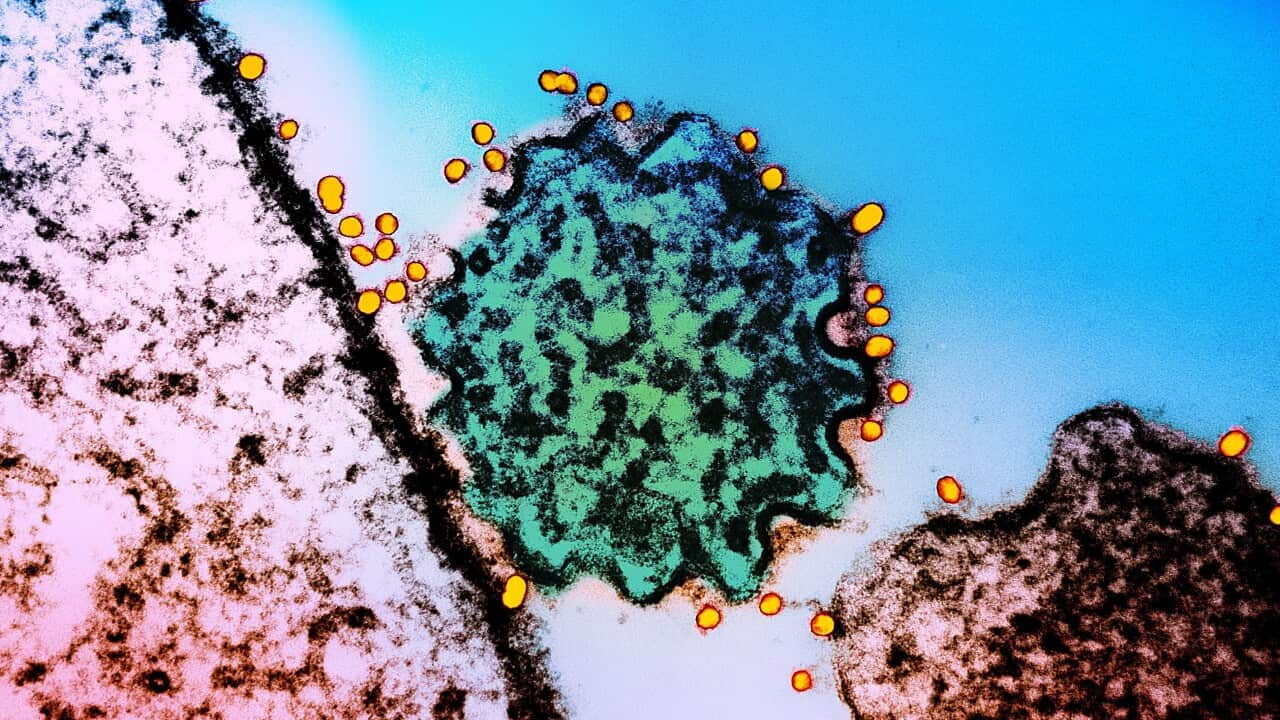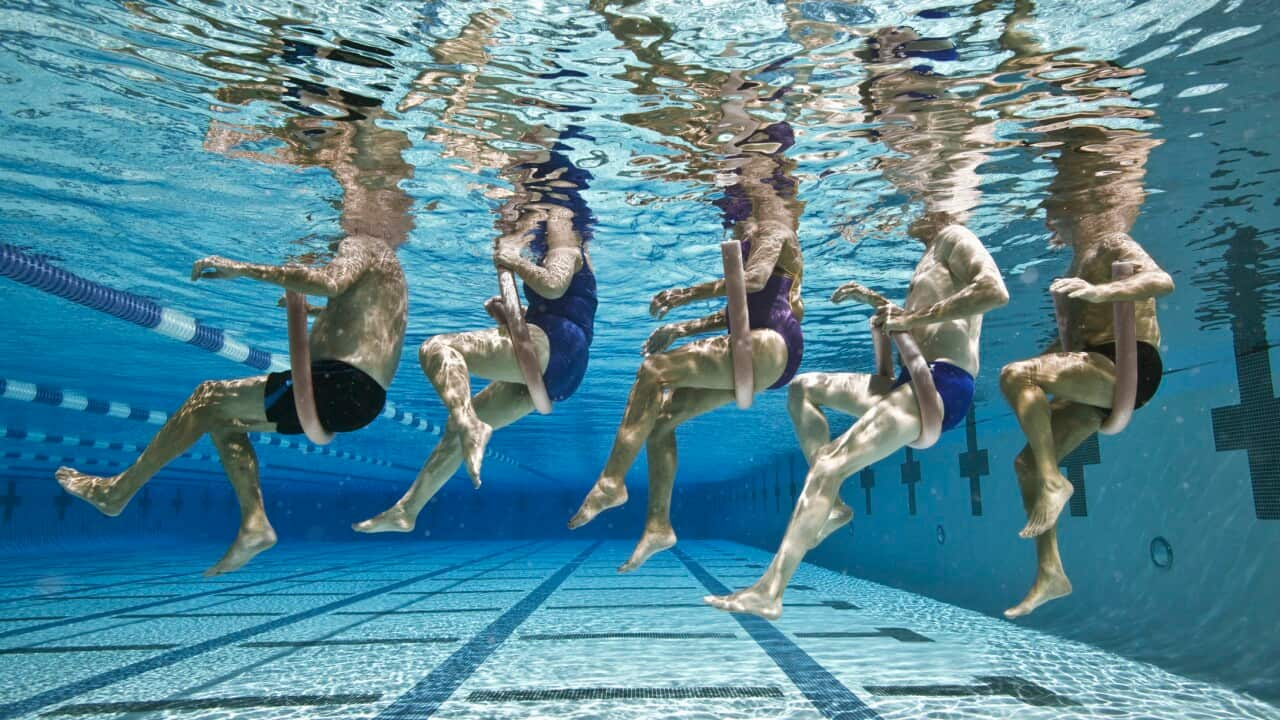Listen to Australian and world news, and follow trending topics with SBS News Podcasts.
TRANSCRIPT:
Ahmed Abu Saifan is an emergency physician at Al-Awda Hospital.
It's where many of the casualties, and dozens of injured, were taken after an Israeli airstrike at a water distribution site in the Gaza Strip.
"At 9:00 AM, we were alarmed by the influx of patients after a missile hit a water distribution point. Most of the injured were children and women. We treated 17 patients, including 7 children. The patients suffered from various injuries, including splinters and fractures, which were treated initially."
Six children were among eight Palestinians killed in the strike, which Israel's military says was the result of an error.
The IDF has released a statement saying it had intended to hit militants in the area, but that a missile malfunction caused it to fall dozens of metres from that target.
That strike was followed hours later by an airstrike on a busy market in the centre of Gaza City, killing at least 12 people.
Officials at Al-Aqsa Martyrs Hospital say there was then a third strike on a home in the central town of Zawaida, killing nine people, including two women and three children.
Raafat Fanouna is among the Zawaida residents mourning their loss.
“There’s no place or even one centimetre in the Gaza Strip - from Rafah in the south to Beit Hanoun in the north - that is safe because of the Israeli aggression, and these strikes and this war. This is a war of ethnic cleansing that (Israeli Prime Minister Benjamin) Netanyahu and his army are doing. There is no safe place.”
Meanwhile, eight United Nations agencies [[including UNICEF, WHO, WFP and UNRWA]] have warned that without immediate fuel access, critical services in Gaza could collapse.
Hospitals, sanitation centres and food distribution operations face imminent shutdown.
Water supplies in Gaza have worsened sharply in recent weeks, with fuel shortages causing desalination and sanitation facilities to close, making people dependent on collection centres where they can fill up their plastic containers.
Economic development expert, Nour-El-Din Abu Ajwa, has told SBS Arabic that people in Gaza are growing increasingly desperate.
"People see the truce talks as a lifeline and halt to the Israeli killing machine. Gaza is no longer liveable. There is no drinking water, no food, no homes, no public services, no universities. Everything is gone. People are exhausted by hunger and the daily death."
As the death toll continues to rise, Israel and Hamas appear no closer to a breakthrough in indirect talks over a U-S backed 60-day ceasefire proposal.
While Hamas says it is willing to free all the remaining 50 hostages in exchange for an end to the war and the full withdrawal of Israeli forces, Israel says it will end the war only once Hamas surrenders, disarms and goes into exile.
But U-S President Donald Trump insists a deal is imminent, as his Middle East envoy, Steve Witkoff, prepares to meet a Qatari delegation on the sidelines of the FIFA Club World Cup in New Jersey to discuss ceasefire and hostage deal negotiations.
"(About) Gaza we are talking and hopefully we're going to get that straightened out over the next week. Let's see what happens. Thank you everybody."
Pressure to reach a deal has continued to come from inside Israel, with relatives of hostages held in Gaza joining activists demonstrating outside the office of Israeli Prime Minister Benjamin Netanyahu in Jerusalem.
The cousin of deceased hostage Carmel Gat, Shay Dickman, was among the protesters, and says they want a deal to be reached as a matter of urgency.
"The Prime Minister recently told the families to be patient. He told the families tomorrow, the day after tomorrow. Prime Minister, I want to remind you of the difference between tomorrow and the day after tomorrow. For Emily Damari and Romi Gonen, the difference between 'tomorrow', when hostages were released, and 'the day after tomorrow', when the deal collapsed, was 480 days in captivity."
